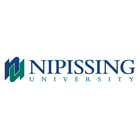- News and articles
- Find usIDP AustraliaIDP BahrainIDP BangladeshIDP CambodiaIDP CanadaIDP ChinaIDP EgyptIDP GhanaIDP Hong KongIDP IndiaIDP IndonesiaIDP IranIDP JordanIDP KenyaIDP KoreaIDP KuwaitIDP LebanonIDP MalaysiaIDP MauritiusIDP Middle EastIDP NepalIDP New ZealandIDP NigeriaIDP OmanIDP PakistanIDP PhilippinesIDP Saudi ArabiaIDP SingaporeIDP Sri LankaIDP Taiwan, ChinaIDP ThailandIDP TurkeyIDP UAEIDP VietnamIDP Corporate
- Social
- English
- Where we operate
- Courses
- Scholarships
- IELTS
- About IDP
- Student Essentials
- News and articles
- Find us
- Find us
- Find nearest IDP offices
- IDP Australia
- IDP Bahrain
- IDP Bangladesh
- IDP Cambodia
- IDP Canada
- IDP China
- IDP Egypt
- IDP Ghana
- IDP Hong Kong
- IDP India
- IDP Indonesia
- IDP Iran
- IDP Jordan
- IDP Kenya
- IDP Korea
- IDP Kuwait
- IDP Lebanon
- IDP Malaysia
- IDP Mauritius
- IDP Middle East
- IDP Nepal
- IDP New Zealand
- IDP Nigeria
- IDP Oman
- IDP Pakistan
- IDP Philippines
- IDP Saudi Arabia
- IDP Singapore
- IDP Sri Lanka
- IDP Taiwan, China
- IDP Thailand
- IDP Turkey
- IDP UAE
- IDP Vietnam
- IDP Corporate
- Social
- Language Switcher
- IDP Education /
- Colleges and Universities /
- Canada /
- Nipissing University /
- Bachelor of Arts in Social ...


Location
Canada
Qualification
Bachelor Degree
Fees
CAD23000
(2025)
Duration
4 Year(s)
Next intake
23 June 2025
Entry Score
6.5
IELTSCourse info
You might find yourself in departments like education, health, housing, immigration and citizenship, international development, labour, social services, or veterans’ affairs, working perhaps as a claims adjudicator, employment planning officer, housing management officer, immigration officer, public affairs officer, or policy analyst.
Furthermore, you could be employed in government-funded institutions such as hospitals, human service organizations, prisons, or universities. You might also find yourself working for foundations, advocacy associations, interest groups, charities, trade unions, religious institutions, Aboriginal organizations, political parties, or global non-governmental organizations (NGOs).
These examples demonstrate the range of potential employers for whom you might begin your career as a researcher, media relations officer, legislative assistant, fundraising officer, intake worker, grants administrator, or volunteer coordinator – and these are just a handful of possible job titles.
- Scholarships View all scholarships
- Internships
Course fees are indicative and should be used as a guide. to get an accurate price.
Duration: 4 Year(s)
Fees: CAD23000
| Intake | Location |
|---|---|
| Fall (September), 2025 | North Bay |
| Winter (January), 2026 | North Bay |
| Spring (May), 2026 | North Bay |
| Summer (June), 2026 | North Bay |
| Summer (June), 2025 | North Bay |
| Spring (May), 2025 | North Bay |
| Spring (May), 2027 | North Bay |
| Winter (January), 2027 | North Bay |
| Fall (September), 2026 | North Bay |
Entry requirements for Nipissing University
Application Deadline
The application deadline isn't available Speak to an IDP counsellor for more detailed information
Further information
If you aren't eligible for the above entry requirements, you might ant to explore pathway options at Nipissing University. If you want to find out more, speak to our counsellors.
What our students think
We’ve haven’t received any reviews for this institution yet.
Recommended for you
- Bachelor Degree
- Fort Nelson , Canada
- Next intake:05/2025
- Entry Score: IELTS 6.0
- CAD11580 (2025)
- THE World Ranking:801
- Bachelor Degree
- Regina , Canada
- Next intake:05/2025
- Entry Score: IELTS 6.5
- CAD24610 (2025)
- Bachelor Degree
- Prince George , Canada
- Next intake:09/2025
- Entry Score: IELTS 6.0
- CAD15738 (2025)
- Bachelor Degree
- Vancouver , Canada
- Next intake:05/2025
- Entry Score: IELTS 6.0
- CAD12175 (2025)
- Bachelor Degree
- Burnaby , Canada
- Next intake:07/2025
- Entry Score: IELTS 6.0
- CAD18300 (2025)
- Bachelor Degree
- Vancouver , Canada
- Next intake:07/2025
- Entry Score: IELTS 6.0
- Bachelor Degree
- Vancouver , Canada
- Next intake:07/2025
- Entry Score: IELTS 6.0
- CAD18300 (2025)
- Bachelor Degree
- Campbell River , Canada
- Next intake:09/2025
- Entry Score: IELTS 6
- CAD14905 (2025)
Your action plan
Step 1
Shortlist your courses
Choose the best three courses you’re most likely to pursue.
Step 2
Check your eligibility
Get an instant in-principle offer for courses with the IDP FastLane tag.
Step 3
Apply through IDP Live
Fill out the form once and use it to apply to multiple courses.
How does IDP FastLane work?
With the FastLane 'Offer in Principle', you'll know in minutes if you'll be accepted!
Select an institution and course
Create your academic profile
Submit your application for an 'Offer in Principle'
Your chosen institution(s) will send you a decision in minutes!
Get ready to apply with an expert counsellor




